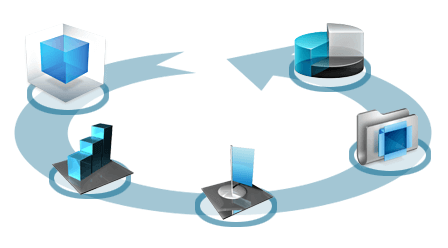A key tenet of the DCRI’s mission is to share knowledge. One way in which we can achieve this goal is by sharing with other researchers data from our collaborations, clinical trials, and appropriate or relevant observational studies.
Duke’s Shared Datasets
As part of the Duke University School of Medicine, we foster the principles of open science and data access from clinical studies. Our data sharing goals and policies include:
- Appropriate access to research information, so patient privacy is maintained, with the understanding that the nature of the study and sharing method will necessitate a range of privacy controls.
- Proper oversight with minimum barriers to data access, to prevent against misuse of data, while promoting new discovery.
- Maintaining utility of data, such that shared data can be used for new analyses.
- An expectation that results of analyses from shared data will similarly be shared.
- Acknowledgement of the work of original contributors.
Four data sharing opportunities are described and links to related resources are provided.
Research Datasets
At the DCRI we believe that the dissemination of clinical research results is vital and that the sharing of data is important. In accordance with the International Committee of Medical Journal Editors’ (ICMJE) data sharing recommendation, we encourage researchers interested in accessing clinical trial data to review data sharing policies of the study sponsor and/or request datasets through Vivli.

SOAR™ (Supporting Open Access for Researchers) is a collaboration between the Duke Clinical Research Institute (DCRI), academia, and private industry to open clinical research data for the benefit of the broader research community.
Our Goal
The goal of SOAR™ is to foster transparency and openness in research, enabling researchers to more rapidly build upon previous work and allowing patients to gain access to needed therapies more quickly. The SOAR™ committee includes experts in biostatistics, research ethics, patient privacy, and the clinical specialty of the research. Proposals will be evaluated based on their scientific rationale as well as their analysis plans.
"In the future, clinical trialists, data scientists, and data analysis should strive to find a balance between maintaining an academic presence—including the publications that drive academic success—and appropriate collaboration to ensure that everyone involved is adequately recognized and rewarded, and future patients reap the benefits of the new information."
Frank Rockhold
Professor of Biostatistics and Bioinformatics
Partnering to build a community of resources will enable researchers to advance science and improve the care of patients around the world.

Data Access
SOAR™ aims to facilitate open sharing of clinical trial data with responsible researchers to promote open science and allow investigators to verify trial results as well as pursue interesting secondary uses of trial data. Ultimately, this increase in transparency will inform science and improve patient care.
Data Governance
Each proposal is quickly reviewed by an Independent Review Committee with expertise in biostatistics, research ethics, patient privacy, and the clinical specialty of the research to evaluate the statistical analysis plan, plan to protect patient privacy, dissemination plan and qualification of the investigator(s). The data and analytical tools are provisioned directly to the investigator. The committee also reviews the final manuscript prior to submission to assess concordance with the stated analysis plan.
Expert Leadership
The SOAR™ program enables responsible data sharing through partnerships among academia, industry, and individual investigators. Overseen by senior experts from clinical science, biostatistics, and regulatory practice, SOAR™ is at the forefront in understanding the complexities of data sharing and secondary analysis.
Want to participate in SOAR™?
Contact us to find out how.